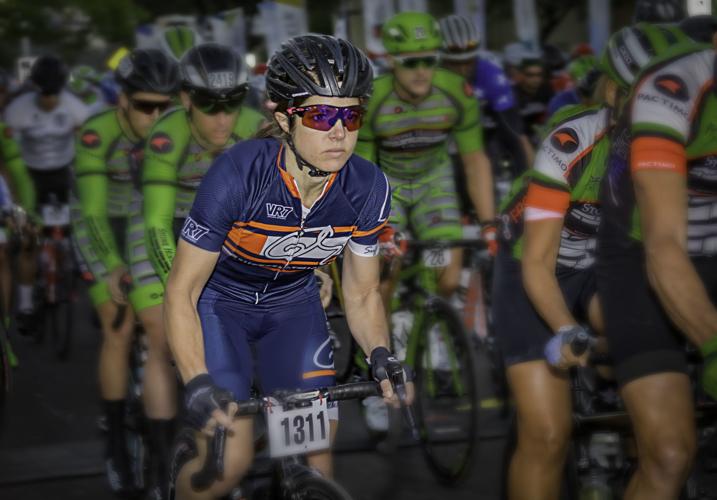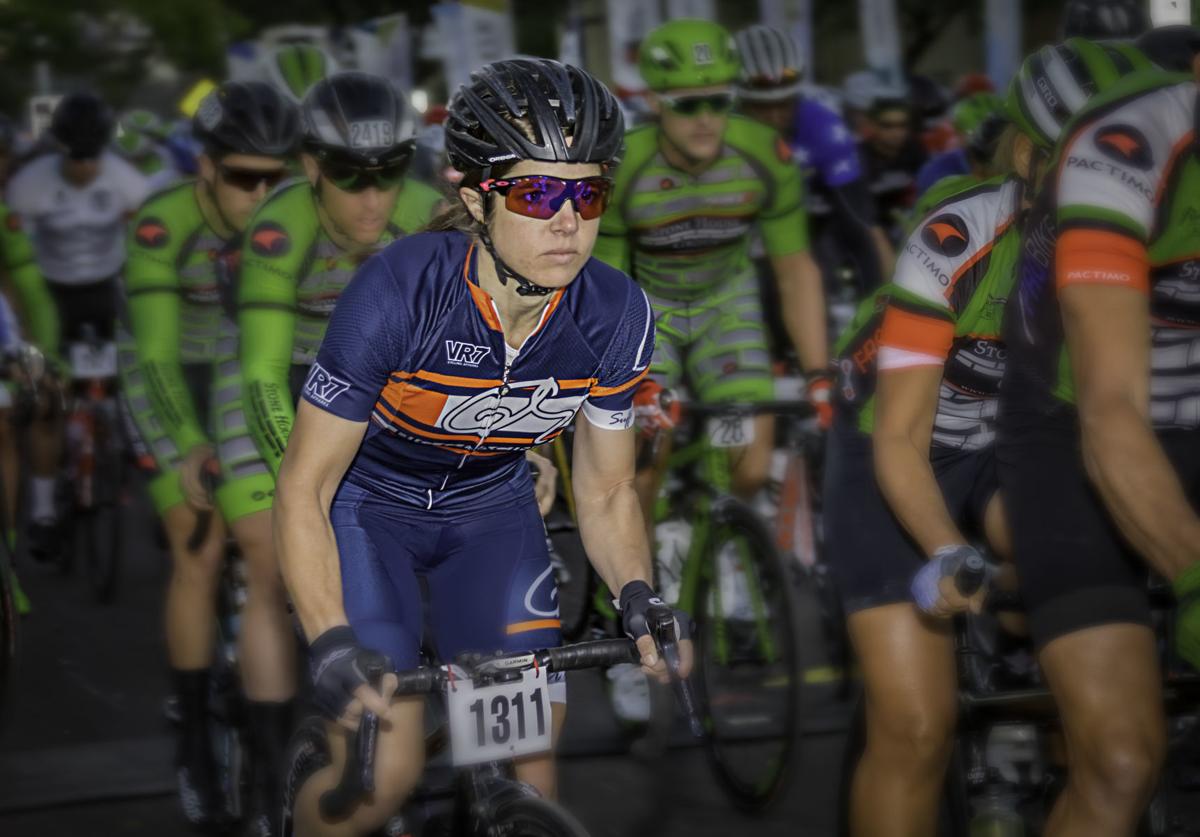Imagine the glory, if you let yourself.
Imagine that finish line getting closer, closer, closer, there, and the gold medal that goes along with finishing first. The joy, the accomplishment, the blood, sweat, tears, et al.
Imagine you’ve finished second, not once, but twice, last year and the year before, two trips up the podium, both times one step too short. Imagine how bad you’d want it this year. Imagine the hunger, the desire, the want.
Now imagine you’re Anna Sparks.
And imagine that winning doesn’t even matter at all. Not a bit.
As she goes for the gold this year — or doesn’t, who cares — Sparks knows one thing. She’s not doing this for Anna Sparks. The recently retired professional cyclist has bigger things on her mind.
She’s part of the Big G team at El Tour de Tucson, and she’s been a part of it for three years, honoring local doctor Greg Macciula and his fight against prostate cancer. Three years ago, they fought to lift Macciula to a platinum-qualifying ride in the 100-mile race.
Two years ago, planning on going for it again, Macciula fought a bowel obstruction the night before the race and was too ill to give it a go. Instead, he and the team encouraged Sparks to go for the women’s championship.
“I was like OK, whoa, change of plans here,” Sparks said of gearing up for the 2016 race. “It’s one thing when you’re with that team and you’re cruising along and our focus was Greg. But if this is what Greg wanted, this was what I was gonna do. He’s just a boss, you know? I love every minute of him. So somebody give me something to eat, now I’m going to compete.”
She’d finish second, just short of Jillian Beardan, the first transgender woman to win the event. Sparks finished less than a second behind.

Anna Sparks taking part in the 2016 El Tour de Tucson.
Last year, Sparks again went for the title as a part of the Big G team, but was involved in a crash with several other riders. She picked herself up and kept going, thinking she was still in the lead. She was not, and finished second to Betsabe Solomon.
This year, Macciula is attempting a slower pace but is planning to ride alongside his sons and grandson and namesake, Rory (short for Gregory) — three generations of Macciula’s. Sparks wasn’t sure how hard she was going to compete on Saturday. She and Greg would discuss it on Friday.
“If he wants me to go for the win, then I’ll go for it,” she said. “If he wants me to be with the team, I’ll be there.”
This kind of selflessness is nothing new to Sparks. As a professional cyclist, she raced in the UCI World Tour, typically as a domestique, providing support for the teammates who would eventually find themselves on the podium.
“I’ve spent my entire career, and life, in team sports,” Sparks said. “We are all working together for a No. 1 goal, but I don’t have to win to feel satisfied. That doesn’t deem me a success. I’m out there because of Greg.”
But it’s not just for Macciula. The Big G team has come to mean a lot more than that.
“It started out that these elite athletes, professionals, and they realized that the world was bigger than just their self-worth,” said Jill Macciula, Greg’s wife. “When they rode for Greg, they embraced it so much. They realized that if Greg had this condition, others have it, too.”
True. More than you’d realize.
“You’d be surprised the number of fathers, uncles, friends of people on this team who were in the midst of battling cancer,” Macciula said. “Last year, we rode for eight people. Of the eight we rode for, five succumbed to their disease in the last year. All of these came from the team. To show you we’re talking about reality, within just this small group, five. It’s sobering.”
For Sparks, that’s enough reason to ride.
A former soccer star, Sparks was born in Mississippi but raised in Arkansas. She played collegiate soccer and earned her bachelors and master’s degrees at Ole Miss, but was hired by the University of Arkansas as an assistant coach, where she served for four years before she was hired away by ASU.
While with the Sun Devils, Sparks took up cycling.
“I just had a desire to still be competitive myself,” she said. “If I could take one year, even if I didn’t make a dime, I wanted to race professionally for one year. That one year turned into six years.”
Since retired from cycling, Sparks devotes all of her time and energy toward her burgeoning coaching and nutritionist business, SparksSystems, which includes metabolic testing to start a baseline for her clients, which include everything from professional athletes to non-athletes battling type-2 diabetes.
“This little program is getting wings and starting to fly,” Sparks said. “I know that my purpose is to serve. I want to impact as many lives as possible.”
A win in El Tour wouldn’t be anything compared to the wins Sparks has on a daily basis, with clients who never knew what they could accomplish.
“We’re reversing type-2 diabetes on a daily basis,” she said. “That’s winning. When I hear that we’ve got someone off their medications. I just got off the phone with a 14-year-old girl’s soccer player. We were going over what she should be eating every day, and she says, ‘Anna, I know now what I need to do. I’ve been playing so much better.’ Boom. That’s a win.”
Who needs one more step up a podium when you have that?
“At the start of El Tour, years ago, when I was competitive — you could tell everyone was ramped up to really do well, and at just the right moment, I’d always say, ‘Does anyone remember who got second last year?’ Meaning, who cares? It doesn’t make any difference if you’re first or last. It’s the camaraderie of this event that matters.”






